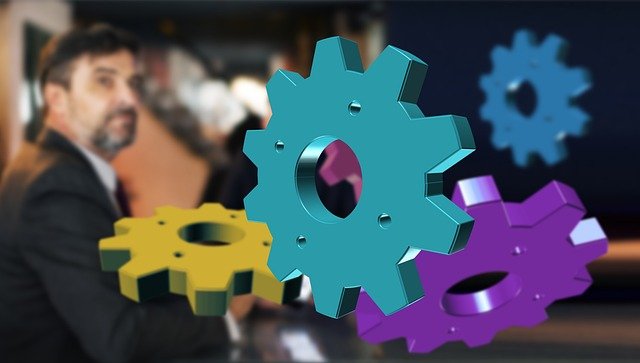Biomanufacturing: A Paradigm Shift in Industrial Production
The intersection of biology and manufacturing is ushering in a new era of industrial production. Biomanufacturing, a process that harnesses biological systems to produce commercially relevant biomaterials and products, is rapidly gaining traction across various sectors. This innovative approach promises to revolutionize traditional manufacturing methods, offering sustainable alternatives and opening up new possibilities for product development and industrial efficiency.

The Foundations of Biomanufacturing
Biomanufacturing finds its roots in the ancient practices of fermentation and brewing. However, modern biomanufacturing has evolved far beyond these traditional applications. The field gained significant momentum in the 1970s with the advent of recombinant DNA technology, which allowed for the manipulation of genetic material to produce specific proteins and compounds.
Today, biomanufacturing encompasses a wide range of techniques, including cell culture, enzyme production, and synthetic biology. These methods enable the creation of complex molecules, materials, and even entire organisms designed for specific industrial purposes. The ability to engineer biological systems at the molecular level has opened up unprecedented opportunities for innovation and efficiency in manufacturing processes.
Applications Across Industries
The versatility of biomanufacturing has led to its adoption across diverse sectors. In the pharmaceutical industry, it has become instrumental in producing vaccines, therapeutic proteins, and personalized medicines. The food and beverage sector utilizes biomanufacturing for the production of flavors, enzymes, and nutritional supplements.
In the materials industry, biomanufacturing is paving the way for sustainable alternatives to traditional plastics and textiles. Companies are now producing biodegradable polymers and bio-based fabrics using engineered microorganisms. The energy sector is also benefiting from biomanufacturing, with the development of biofuels and biochemicals that offer greener alternatives to fossil fuel-derived products.
Advantages of Biomanufacturing
One of the most significant advantages of biomanufacturing is its potential for sustainability. Biological processes often require less energy and produce fewer harmful byproducts compared to traditional chemical manufacturing methods. Additionally, many biomanufacturing processes can utilize renewable feedstocks, reducing dependence on finite resources.
Biomanufacturing also offers unprecedented precision and customization capabilities. Through genetic engineering and synthetic biology, it’s possible to design organisms that produce specific molecules with high efficiency and purity. This level of control can lead to improved product quality and consistency, as well as the ability to create novel materials with unique properties.
Challenges and Considerations
While biomanufacturing holds immense promise, it also faces several challenges. Scaling up biological processes from laboratory to industrial levels can be complex and costly. Maintaining consistent quality and yield across large-scale production batches requires sophisticated control systems and expertise.
Regulatory frameworks for biomanufactured products are still evolving, particularly for novel materials and applications. Ensuring safety, efficacy, and environmental impact assessments for these new products is crucial for public acceptance and industry growth.
The Future of Biomanufacturing
As technology advances, the potential applications of biomanufacturing continue to expand. Emerging areas include the production of cultured meat, bio-based electronics, and even living materials that can self-repair or adapt to environmental conditions. The integration of artificial intelligence and machine learning in biomanufacturing processes is expected to further optimize production and accelerate innovation.
The convergence of biomanufacturing with other cutting-edge technologies, such as 3D bioprinting and organ-on-a-chip platforms, is opening up new frontiers in personalized medicine and tissue engineering. These developments could revolutionize healthcare and provide solutions to complex medical challenges.
Key Insights for Industry Professionals
-
Invest in cross-disciplinary teams that combine expertise in biology, engineering, and data science to drive innovation in biomanufacturing.
-
Develop flexible manufacturing platforms that can adapt to different biological processes and products, enhancing versatility and reducing time-to-market.
-
Prioritize sustainability metrics in biomanufacturing processes, focusing on renewable feedstocks and minimizing environmental impact.
-
Engage with regulatory bodies early in the product development process to navigate the evolving landscape of biomanufactured goods.
-
Explore partnerships with academic institutions and biotechnology startups to stay at the forefront of biomanufacturing advancements.
As biomanufacturing continues to evolve, it promises to reshape the industrial landscape, offering sustainable, efficient, and innovative solutions to global challenges. By harnessing the power of biology, manufacturers can create products that were once thought impossible, paving the way for a new era of industrial production. The future of manufacturing is alive, quite literally, with the potential of biomanufacturing leading the charge towards a more sustainable and technologically advanced industrial sector.






